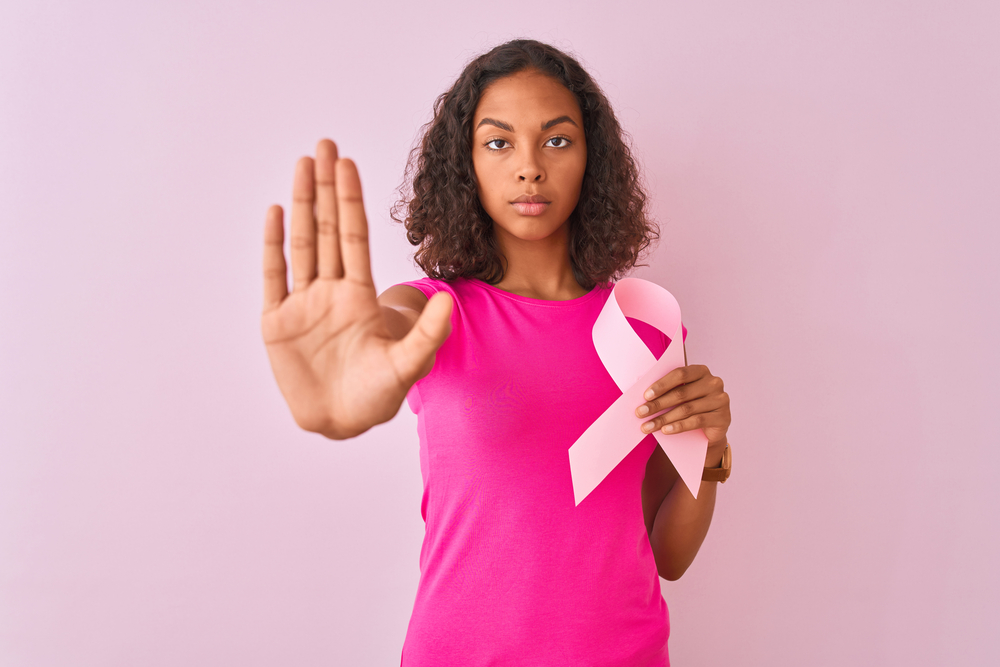NABJ Black News & Views
The breast cancer statistics for Black women are grim. Consider these frightening details:
*Breast cancer is the most commonly diagnosed cancer in Black women with a 31% mortality rate.
*Black women under age 35 are diagnosed with breast cancer at twice the rate of white women and die from the disease three times as often.
*The overall five-year survival for Black women is 81% versus 91% for white women.
*While Black women are diagnosed with breast cancer at a slightly lower rate than white women, the mortality rate is 40% higher. And they are twice as likely to die if they are over 50.
In fact, African-American women of all ages are more likely to die from breast cancer than all other races/ethnicities. One reason for the dire numbers is Black women are twice as likely to be diagnosed with triple-negative breast cancer, a particularly aggressive and deadly form of the disease which is difficult to treat.
Disparities in health care a major factor
Another reason for the higher number of deaths among Black women with breast cancer are disparities in access to high quality health care, according to the American Cancer Society. Also, Black women are more likely to be screened at facilities with fewer resources and no medical accreditation, the organization reports. They also are more likely to go longer between mammograms and wait longer for recommended follow-up exams after abnormal results, the society reports.
The stage at the time of diagnosis, the biology of the tumor, genetics and treatment are also factors. An estimated 40% of the “racial variation in breast cancer subtype” is blamed on inherited genetic mutations, according to Cancer Facts & Figures for African Americans 2019-2021, the most recent and most comprehensive report on cancer and the Black community. The report also indicates that inflammatory breast cancer, a rare but aggressive subtype, is also more common in Black women than white women.”
In 2016, the National Cancer Institute launched the largest-ever study of breast cancer genetics in Black women. In part, the Breast Cancer Genetic Study in African-Ancestry Populations is comparing the genomes or DNA characteristics of 20,000 Black women with breast cancer to those of 20,000 Black women who don’t have the disease.
Those results are also being compared to the genomes of white women with breast cancer. The study is digging into how inherited genetic and biological factors contribute to breast cancer risk in Black women with the hopes of identifying genetic factors that may underlie breast cancer disparities. That trial is ongoing and taking place at Vanderbilt University Medical Center in Nashville.
The reasons for higher death rates in Black women are “deeply complex and sharply nuanced,” said Dorraya El-Ashry, chief scientific officer of the Breast Cancer Research Foundation, the largest private funder of breast cancer research in the world.
“We know that certain health conditions – comorbidities – that are more likely to affect Black women, such as obesity, diabetes, and heart disease, increase the risk of breast cancer and/or adversely affect breast cancer outcomes,” El-Ashry said. “Black women are 50% more likely to be obese and have a two-fold increased risk of being overweight than white women.”
El-Ashry continued, “They (Black women) have a two-fold increased risk of diabetes and are 60% more likely to develop or be diagnosed with diabetes following breast cancer treatment than white women.”






